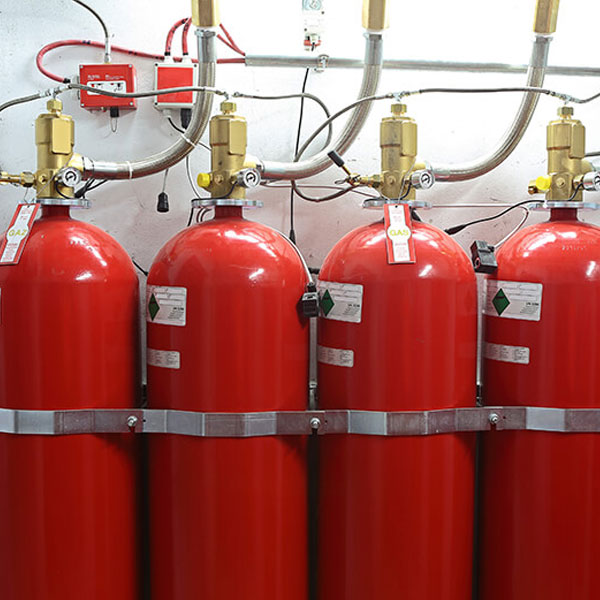CORPORATE OFFICE: 1701, ORIANA BUSINESS PARK, ROAD NO. 22, WAGLE ESTATE, THANE(W), MAHARASHTRA, INDIA – 400604.

Gas separation is a prevalent strategy employed to isolate one or multiple gases within a mixture. Its significance is growing in diverse industrial realms, particularly in endeavours focused on mitigating CO2 for greenhouse gas emission reduction. This is prominently evident in the treatment of emissions from coal-fired power plants. Additionally, attention is increasingly drawn to applications like the extraction and refinement of economically vital gases, including H2, CH4, and O2, from natural gas.
THE BENEFITS OF GAS SUPPRESSION
Gas suppression systems are designed to protect sensitive areas, such as data centers, server rooms, museums, archives, and other facilities where water-based fire suppression methods could cause significant damage to equipment or valuable assets. These systems work by detecting smoke or fire through various means, such as smoke detectors or heat sensors.
Once a fire is detected, the gas suppression system releases a clean agent or inert gas into the protected area. These agents are chosen for their ability to quickly and effectively suppress a fire without causing harm to people or damage to sensitive equipment. Some common clean agents used in gas suppression systems include:

